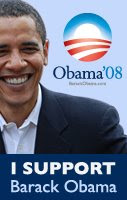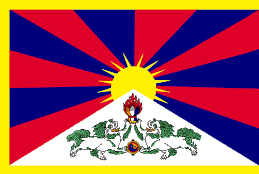By Jeff Seaver
In April, Center for Inquiry/Michigan, in partnership with the
Hauenstein Center for Presidential Studies at Grand Valley State
University, hosted an historic debate between Christopher and Peter
Hitchens. The brothers, long estranged and recently reconciled, had
clashed before in print and on the radio. But this event marked the
first time that they appeared together on stage, one-on-one, before a
live audience, to debate religion and foreign policy.
And this was not just any stage. This stage was set in Grand Rapids,
home to the world's largest Bible publisher, a half dozen Christian
colleges, world headquarters of both the Christian Reformed Church
and the Reformed Church of America, and Mars Hill — a church so large
they actually bought a shopping mall to hold 10,000 churchgoers each
Sunday. This stage was housed in ultra-liberal Fountain Street
Church, a speaking venue over the years for the likes of Clarence
Darrow, Susan B. Anthony, Hellen Keller, Margaret Sanger, Eleanor
Roosevelt, Robert Frost, Alan Watts, Malcolm X, Michael Moore, and
many others.
One wall of the sanctuary is lined with stained glass windows
depicting traditional Biblical personalities. Windows on the opposite
wall feature more enlightened figures such as Plato, Leonardo da
Vinci, Roger Williams, George Washington, Desiderius Erasmus, Louis
Pasteur, Abraham Lincoln, Thomas Jefferson, and yes, even Charles
Darwin.
It was on this stage that brothers Christopher and Peter Hitchens
stepped out before an audience of almost 1400 people anxious to see
sibling rivalry at its finest.
"Of all the places in all the world where I could have held what I
think will be my last debate with my brother Christopher, Grand
Rapids would have struck me as the least likely location," Peter
reflected later. "There is a very strong chance that this will be the
last time we do this."
Christopher Hitchens' name is, of course, well known to many
naturalists and super-naturalists alike. His positions on religion
and the War in Iraq are often polarizing and have created admirers
and detractors on both sides. Younger brother, Peter, is a Londoner,
and although less well known here in the States, is also an
accomplished author, journalist, and media pundit in his own right.
James McIntyre, a fellow journalist and friend to both brothers,
described them this way: "As individuals, they could hardly seem more
different. One [is] a conservative, traditionalist, church-going
Anglican; the other a liberal, louche, drinking-and-smoking atheist."
Christopher, to be sure, knows how to rule the stage with a fierce
and flamboyant erudition that could overshadow any younger sibling.
But despite Peter Hitchens' comparatively reserved demeanor and
buttoned-up style, he displays a bit of Christopher's acerbity and
haughty charm when telling of the time that then Prime Minister, Tony
Blair, told him to "sit down and stop being bad."
The first blows of the evening were landed over the proposition "The
Invasion of Iraq was wrong" with Peter winning the coin toss — and
winning the audience's allegiance for his position against the
war. "I don't want to make this too easy for myself," Peter
opined, "because it seems to me that it is actually a fantastically
easy position to take." And so it seemed to most of the crowd as
Peter bemoaned "the rank stupidity of arguments in its favor" and
recounted many examples to underline what he sees as the carelessness
and callousness with which the war has been waged.
Christopher's rejoinder in support of "the Mesopotamian War" was
rousing, sincere, and laced with its own share of moral revulsion —
at Saddam Hussein's brutality and the world community's complacency
for so long. His boldness may have transformed into hyperbole when he
proffered that "The liberation of Iraq? will stand?as one of the
greatest decisions of American statecraft? as one of the things that
[the American people] will be proudest of in the future than any
decision we've ever made." In the end, some audience members observed
that it was the most brilliant defense of the war they had ever
heard — all the while remaining unconvinced by Christopher's
arguments.
The final and most anticipated round of the brotherly brawl was over
the proposition "God does not exist and he is not great". "Okay, let
me see," Christopher began, "I don't think it's going to take 10
minutes to disprove the existence of God." After Christopher
had "rehearsed" a number of arguments against God's existence for the
crowd, he went on to emphasize that, not only is believing in
a "celestial dictator" absurd, but he's "glad that it's not true."
Religion is, Christopher asserts, the desire for a tyrannical
authority who can, indeed must, "subject you to total surveillance
around the clock? and even worse, and where the fun really begins,
after you're dead — a celestial North Korea." "Who but a slave
desires such a ghastly fate?" he asks. "I've been to North Korea? It
has a dead man as its president? Kim Jong-Il is only head of the
party, not head of the government or the state. That office belongs
to his deceased father." What's more, "It's a necrocracy," says
Christopher. "The son is a reincarnation of the father. It is the
most revolting, and utter, and absolute, and heartless tyranny the
human species has ever evolved. But at least you can die and leave
North Korea."
To hear Peter Hitchen's response, and view the entire debate, visit
http://cfimichigan.org/
Jeff Seaver is the Executive Director of Center for Inquiry/Michigan.
He can be reached at
jseaver@centerforinquiry.net
Abonneren op:
Reacties posten (Atom)













Geen opmerkingen:
Een reactie posten